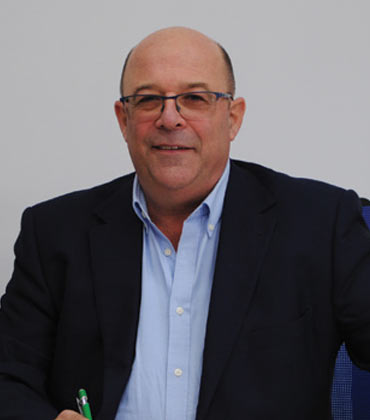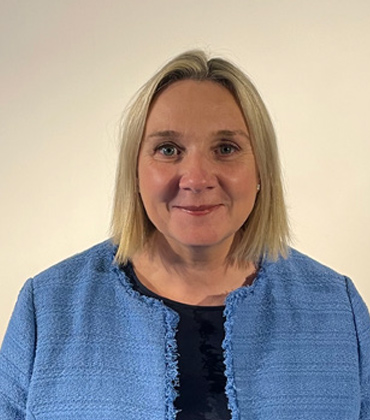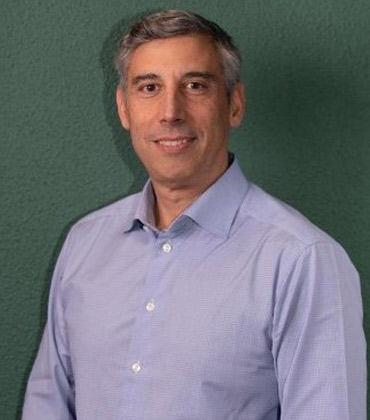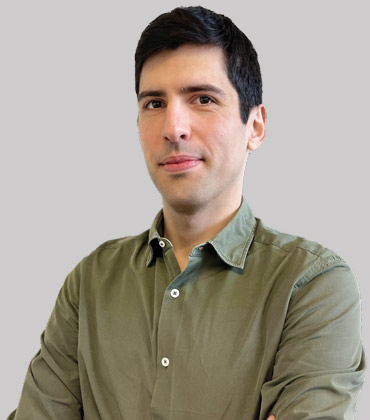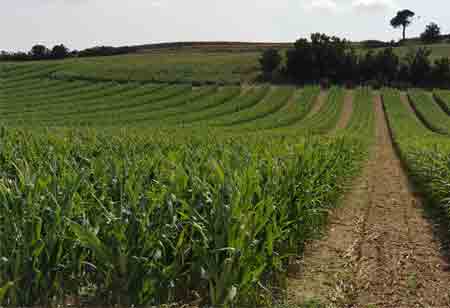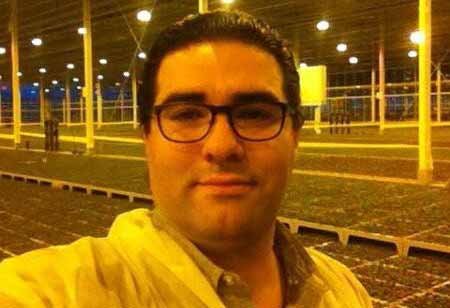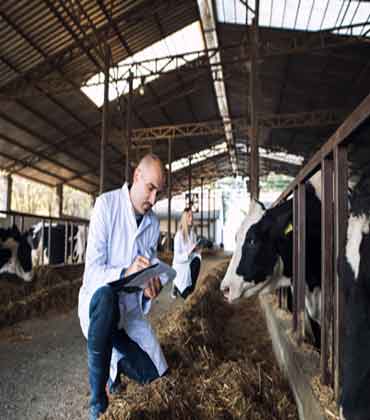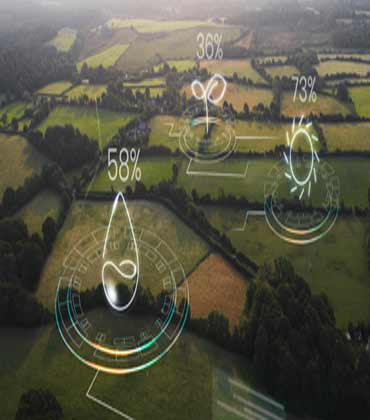Thank you for Subscribing to Agri Business Review Weekly Brief
Agri Business Review: Specials Magazine
In the pursuit of ensuring food security for a growing population and safeguarding the environment for future generations, the focus has turned to develop innovative solutions that harmonize productivity with sustainability. At this critical juncture, Yara International - a global crop nutrition company, is driving regenerative agriculture as a key priority in its strategic agenda. Focusing on sustainable growth, Yara offers comprehensive crop nutrition solutions and expertise, and supports farmers and food companies in the journey of decarbonizing the food chain and securing food production. Yara's mission is to responsibly feed the world and protect the planet, with the ambition to Grow a Nature-Positive Food Future. “At Yara, our commitment is to develop long-term sustainable food production solutions, while positively impacting nature and the climate,” says Maria Silvia Tonti, VP Regenerative Agriculture Solutions at Yara International. The company sees regenerative agriculture as the structural transformation of the agri-food system. It defines it as a systematic, outcome-based approach to adopt the best sustainable farming practices that positively affect nature and climate. Despite its potential, regenerative agriculture still suffers from a lack of alignment and common commitment. Farmers face limited incentives to adopt and sustain regenerative practices, with the risk of preventing their widespread adoption. In the effort to resolve these roadblocks and promote convergence on the approach, Yara collabo-rates with most of the global industry coalitions. The aim is to foster alignment and create an environment that supports and incentivizes farmers to transition and maintain regenerative agriculture practices. Aligned with this vision, Yara’s approach to regenerative agriculture is to focus on its key themes - climate, soil health, resource use, biodiversity, and farmers' prosperity. Yara has developed tailored solutions and indicators to positively impact each of them. It provides farmers with rich portfolio of products ranging from low-carbon mineral fertilisers to organic-based products and digital agricultural tools developed from over 100 years of agronomic knowledge. Its solutions support maintaining existing agricultural land use with improved productivity and crop resilience to climate stress, while protecting natural habitats, enhancing soil biodiversity and soil health.
Precision Farming Equipment Manufacturer in Europe
Founded in 2010, Guadalsem has carved a specific market in the European agricultural sector with its dedication to providing the best seed genetics. The company’s commitment to sustainable crop cultivation and increasing farmer incomes has set it apart, especially in the wake of Europe’s food price crises and shortages. Guided by the visionary leadership of Olivier Crassous and sustained without external financial investments, Guadalsem stands as a testament to innovation and resilience in agricultural advancements. Its services can be broadly classified into two main categories—breeding, producing, and marketing premium seeds, along with offering seed production services to multinational corporations. Guadalsem’s journey began with cotton when it launched its flagship K product line, focusing on traits like adaptability, growth cycle, productivity, and fiber quality. In a significant move in 2014, the company partnered with key players in the global cotton market to develop a robust genetic improvement program. This initiative brought forth a portfolio of non-GMO cotton varieties tailored to the agroclimatic conditions of Spain, Greece, and Turkey, providing European farmers with access to world-class genetic advancements in cotton. The company’s foray into cereal breeding, targeting the underrepresented spring species, further exemplifies its commitment to innovation and diversification. This strategic expansion complements its cotton market expertise, ensuring Guadalsem remains at the forefront of agricultural development with a portfolio that responds adeptly to the food industry’s evolving needs. As a mark of quality, Guadalsem’s certification represents a pledge to its cutting-edge breeding practices and influence in shaping the future of global agriculture. The same level of proficiency also extends to its second business line—seed production services, which has solidified its status as a provider of choice for large-scale crops, such as sunflower, rapeseed, and cotton. Its quality and purity standards have garnered the trust of many major global corporations, leading to formidable partnerships. For instance, the company’s fruitful collaborations with prominent international seed corporations such as Bayer AG, Corteva Agriscience, BASF, Lidea, Limagrain, and RAGT have been a driving force behind the continual expansion of Guadalsem’s activities. “Our dedication to sustainability has been recognised with the prestigious ‘Premios Andalucía Excelente’ award in the Sustainability category for two consecutive years, 2021 and 2022,” says Crassous, general manager. These accolades affirm Guadalsem’s role as a catalyst in Europe’s sustainable agricultural endeavours. The European Cotton Renaissance with Guadalsem’s Non-GMO Revolution In an industry predominantly governed by genetically modified organisms, Guadalsem stands apart, securing a specific market in the cultivation of non-GMO cotton within the European market—specifically in Spain, Greece, and Turkey, with the latter being an especially key market. This strategic positioning is significant in a sector where GMOs account for the vast majority of global production. Confronting the decline of non-GMO cotton breeding programs in Europe, a challenge precipitated by the withdrawal of two major U.S. industry entities, Delta Pine and Phytogen, Guadalsem has played a crucial role in safeguarding the cotton industry from potential downturns in productivity and sustainability. With a focused and innovative approach, Guadalsem has benefited from his collaborations of advanced techniques, such as molecular markers and comprehensive data analytics, to enhance both the reliability and productivity of its cotton varieties. This proactive strategy became essential in maintaining and progressing the cotton sector in these targeted regions. Today, the success of the cotton breeding program is instrumental in ensuring the longevity and sustainability of cotton cultivation in Europe. While the market in countries like India, China, or the U.S. vastly overshadows that of Europe, the combined market potential of approximately 450,000 hectares in Turkey, 260,000 in Greece, and 52,000 in Spain is still quite substantial. This specific market presents Guadalsem with a distinct opportunity for growth and success. “We are one of the primary cotton seed producers in Europe, and our superior-quality seeds have yielded considerable success, with sales in Spain accounting for 46 percent of their turnover, while exports to Greece and Turkey comprise 54 percent,” says Crassous.
IOT Based Sustainable Aquaculture Solution in Europe
Over the years, we have seen a significant increase in awareness for fish welfare and sustainability in aquaculture. With consumers, supermarkets and stakeholders requiring more humane food production practices, producers need reliable solutions that help secure a product that meets welfare and quality criteria. UK-based aquaculture technology provider Ace Aquatec’s goal is to accelerate the world’s adoption to sustainable aquaculture practices and enhance marine welfare by providing welfare-first technology. Its products range from awardwinning in-water electric stunners and marine protection systems to biomass cameras. The A-HSU® stunner guarantees humane harvesting by stunning fish insensible in-water, within less than a second, reducing stress for the fish and creating a safer work environment for staff. This system is available for all commercial fish species, including salmon, trout, tilapia, sea bass and bream, and prawns/shrimp. Ace Aquatec’s biomass cameras provide farmers with accurate biomass insights of their fish as they grow, and can help inform feeding and harvesting schedules, empowering producers in the UK, Australia, America, Greece, and Chile. Its protection systems safely move marine mammals away from offshore construction sites and fish farms. Ace Aquatec’s high-welfare aquaculture solutions have been deployed by clients worldwide. Scottish Sea Farms have used its stunners since 2019 and have five systems at their processing factories in Scotland. Ace Aquatec has systems in Chile at Abick and AquaChile, in New Zealand at Sanford and trout systems in Japan and Denmark at Musholm and Cedar Crest in Canada.
AI-Powered Dairy Farm Services in Europe
The dairy industry is undergoing a quiet revolution, thanks to new technologies, like artificial intelligence and the use of Big Data in dairy. Dairy Data Warehouse (DDW) transforms raw farm data into actionable insights through its innovative cloud-based platform, empowering farmers and their advisors-ranging from genetics specialists to feed additive experts-with the tools they need to make smarter, performance-driven decisions. At the core of DDW’s success is its focus on collaboration. The platform allows farmers to securely share their data, creating a seamless ecosystem where advisors can access raw cow data, aggregate herd KPIs and AI-powered and predictive models. This collaborative approach fosters data-driven strategies that enhance productivity, improve sustainability, and maximize profitability for all stakeholders. The introduction of AI is a game-changer for dairy farming. “Other sectors have been leveraging AI for years, but in dairy, AI tools are just beginning to make an impact. At DDW, we are bridging that gap by enabling farmers to unlock the full potential of their existing data, transforming it into actionable, trustworthy insights,” says Fernando Mazeris, managing director. Predicting Cow Health and Preventing Diseases Recognizing cow health is one of the most critical drivers of dairy productivity, DDW prioritizes early disease detection through proactive, predictive measures. Its flagship tool, Predicta GUARDIAN, leverages AI to monitor and evaluate each cow's health. By analyzing key factors such as milk production, reproduction events, health history and other vital parameters, the tool can predict the risk of a cow developing any of six common illnesses during the crucial early months after calving. These insights don’t just flag potential issues-they empower action. Predicta GUARDIAN provides farmers with timely alerts, enabling collaboration with veterinarians to implement targeted, preventive measures. “With Predicta GUARDIAN, farmers can move away from blanket treatment approaches, focusing only on higher-risk cows. This reduces unnecessary treatments, cuts medication costs, and supports overall herd health,” explains Mazeris.
AI- Powered Agriculture Solutions in Europe
Farming today is a blend of tradition and technology, but it comes with challenges that require balancing both. Farmers face pressure to improve productivity, manage resources efficiently, and navigate complex regulations-all while handling data on weather patterns, soil conditions, and crop health that must be seamlessly integrated across operations. To address these challenges, farmers increasingly rely on apps and tools. Platforms like FieldClimate provide accurate weather forecasts and CropX offers insights for efficient irrigation. Crop health monitoring apps combine satellite imagery with sensor data, while accounting tools like Sage streamline financial and resource management and Sentinel-Hub provides periodic satellite imagery of crops' vegetation health. While these solutions add immense value, managing multiple platforms can be overwhelming. Switching between systems to monitor irrigation, track pests, manage finances, and plan activities creates inefficiencies and fragmented data, leading to missed opportunities and unoptimized outcomes. This is where Wisecrop steps in with its state-of-the-art agricultural operating system. Acting as a centralized platform, Wisecrop unifies data from various sources, automates processes, and seamlessly connects field operations with business needs. By integrating these tools into one cohesive system, Wisecrop simplifies farm management and maximizes efficiency. Digitizing Agriculture for Transparency and Connectivity Wisecrop’s mission extends beyond simplifying farm management-it aims to bring the agricultural industry into the digital age by creating a more transparent food value chain. “We believe farmers are way too undervalued, and restoring the value they deserve is achievable through wise digitization,” says Tiago Sá, CEO and Co-founder of Wisecrop. The platform transforms physical assets into data points-from climate conditions to crop health and field operations-and enables proactive management and predictive analysis, offering insights that empower farmers to address potential issues before they escalate. Digitizing everything from soil health to machinery use not only boosts productivity but also strengthens the connection between farm operations and consumer awareness.
CXO INSIGHTS
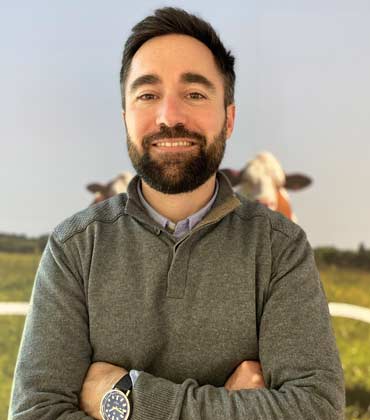
Precise Nutrition Meets the Digital Age
Julien Mailliu, Digital Apps Manager, ADM Animal Nutrition

Building Successful International Marketing Strategies for Seed Treatment
Palle Pedersen, Global Head Disease Control, Syngenta Seedcare
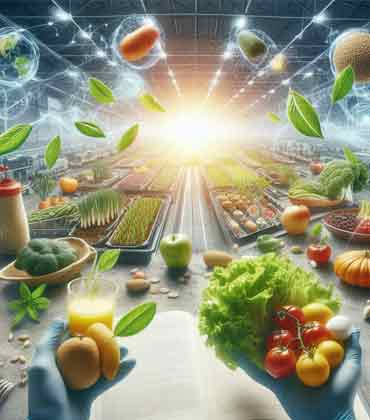
Transforming the Food Industry Through a Sustainable Approach
Robert Erhard, Head of Dairy, Corporate Sustainable Agricultural Development, Nestle
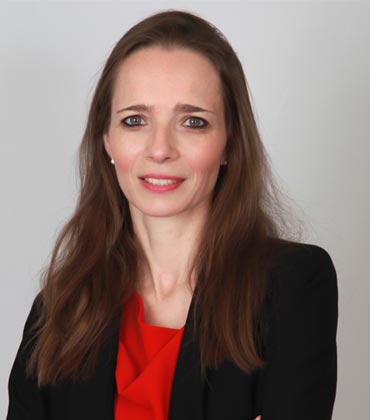
Encouraging Sustainable Agricultural Practices
Laetitia Domange, Development Director - Agricultural Business Unit, Groupe Coopératif Maïsadour
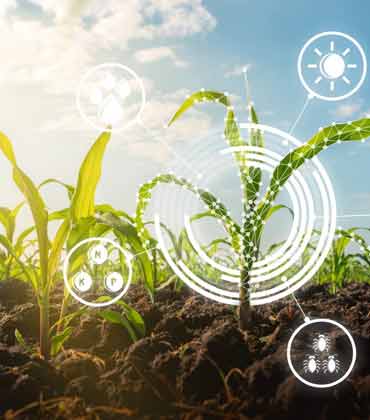
The Transformational Journey of Agriculture in Azucarera
Salome Santos Lorenzo, Agriculture Director, Azucarera

Achieving Sustainable Farming Practices
Felix Niedermayr, Head of Agricultural Center of Competence, Loacker
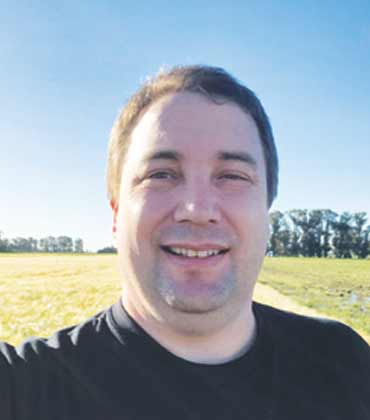
A system of agricultural practices helps restore soil health, increase biodiversity and capture carbon.
Edivan Panisson, Director of procurement and sustainability, Ambev
IN FOCUS
The Flexibility of Smart Livestock Fences in the UK
Smart livestock fences, via GPS collars and apps, offer UK farmers flexible, customisable grazing boundaries. They reduce labour, improve pasture management, enhance animal welfare, and boost efficiency. They also enable remote control.
EDITORIAL
The Meteoric Rise of the Agri-business Market in Europe
The European agri-business market plays a pivotal role in the continent’s economy, contributing significantly to employment, exports, and rural development. Valued at over EUR 500 billion, the sector spans primary agriculture, food processing, distribution, and agricultural services. As a key pillar of the EU’s Common Agricultural Policy (CAP), agri-business in Europe supports food security, environmental stewardship, and economic cohesion across member states. Yet, the industry faces a complex array of challenges that threaten its longterm sustainability. Climate change continues to exert mounting pressure, with rising temperatures, droughts, flooding, and erratic seasonal patterns affecting crop yields and livestock health. These changes also increase vulnerability to pests and diseases, putting strain on both natural and financial resources. The COVID-19 pandemic exposed inefficiencies in supply chains, and the war in Ukraine disrupted grain supplies, energy prices, and fertilizer imports, further complicating production and distribution. Policy volatility, shifting subsidy frameworks under CAP reform, and trade tensions with non-EU countries create uncertainty for agri-business players. At the same time, the sector is undergoing rapid technological transformation. Precision agriculture, AI-driven decision-making tools, robotics, and satellite monitoring are increasing efficiency and reducing environmental impact. However, smaller farms often face financial and technical barriers to adoption, widening the gap between large agribusinesses and family-run operations. European consumers are also reshaping the market. Growing demand for organic, locally sourced, and sustainably produced food is forcing supply chains to adapt. Farmers are under increasing pressure to meet stringent environmental regulations and carbon neutrality targets, prompting a shift toward regenerative agriculture, biodiversity conservation, and sustainable water usage. Despite these headwinds, the European agri-business market remains resilient and innovation-driven. The future lies in harmonizing sustainability with profitability. Public and private investments in agricultural technology, rural infrastructure, and green energy solutions are poised to accelerate growth. Export diversification, enhanced food traceability, and digital integration across the supply chain will ensure agility in responding to both global disruptions and shifting consumer expectations. While uncertainties remain, Europe’s agri-business sector is charting a forward-looking course. With the right mix of technology, policy alignment, and sustainable practices, it is well-positioned to reinforce its role as a vital contributor to the continent’s economic stability and ecological resilience.

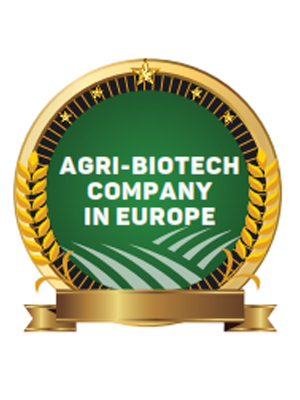
![Yara International [YAR.OL]: Pioneering Regenerative Practices For A Sustainable, Food-Secure Future Yara International [YAR.OL]: Pioneering Regenerative Practices For A Sustainable, Food-Secure Future](https://www.agribusinessrevieweurope.com/newstransfer/upload/1-vn6ra-.jpg)
